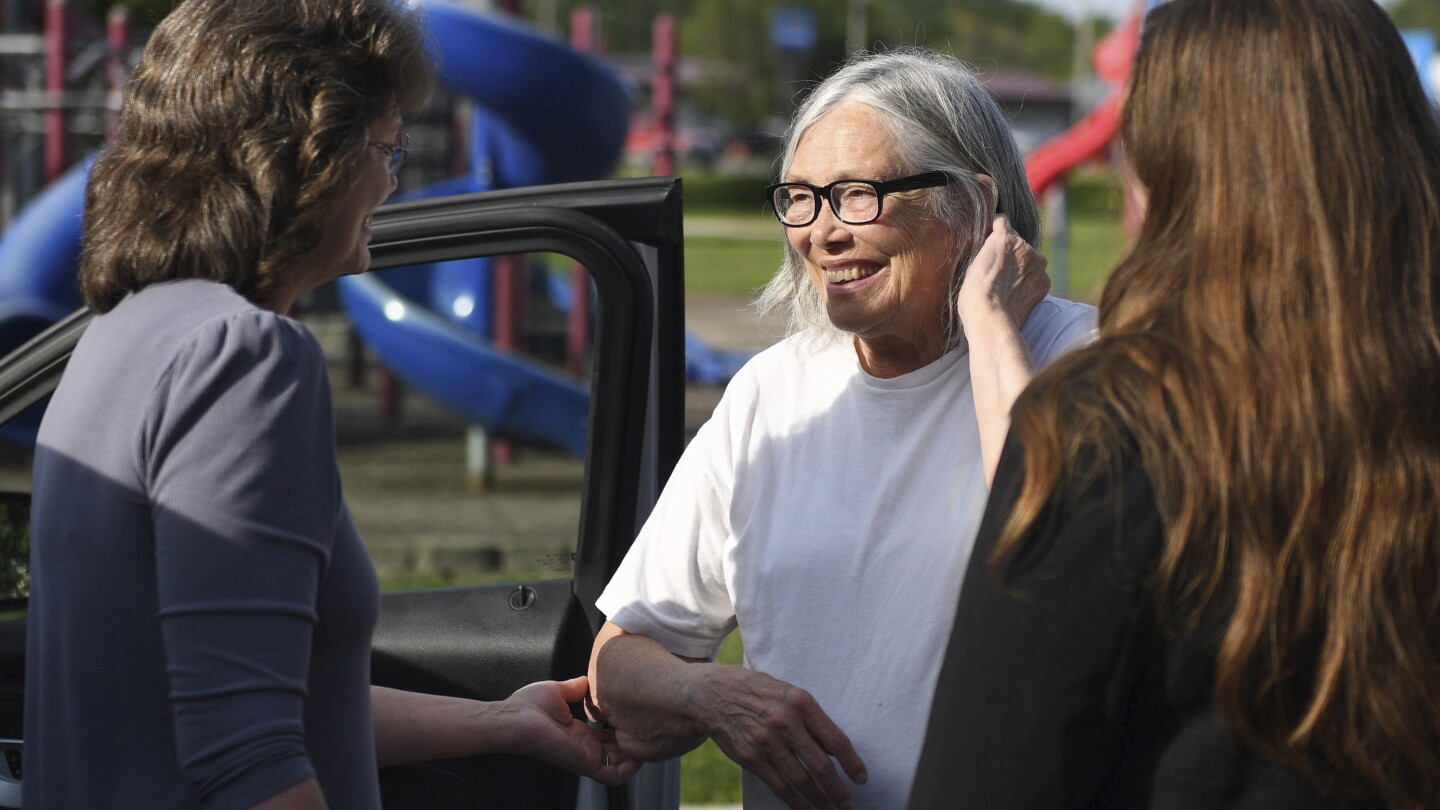A woman whose murder conviction was overturned after she served 43 years of a life sentence was released Friday, despite attempts in the last month by Missouri’s attorney general to keep her behind bars.
Sandra Hemme, 64, left a prison in Chillicothe, hours after a judge threatened to hold the attorney general’s office in contempt if they continued to fight against her release. She reunited with her family at a nearby park, where she hugged her sister, daughter and granddaughter.
Hemme had been the longest-held wrongly incarcerated woman known in the U.S., according to her legal team at the Innocence Project. The judge originally ruled on June 14 that Hemme’s attorneys had established “clear and convincing evidence” of “actual innocence” and he overturned her conviction. But Republican Attorney General Andrew Bailey fought her release in the courts.
“It was too easy to convict an innocent person and way harder than it should have been to get her out, even to the point of court orders being ignored,” her attorney Sean O’Brien said. “It shouldn’t be this hard to free an innocent person.”



Canada has local facilities and provincial correction facilities performing the tasks of our county jails.
The US also has federal penetentiaries for the worst crimes with the longest sentences. But, it’d be rare for a relatively short two year sentence to be served in one.
The US system seems more distributed. Each state and county can, to a great extent, decide the conditions under which prisoners live. This is one reason it’s very difficult to reform our prison system.
All prisoners suffer. Could you please tell me more about how the system is constructed and the nature of suffering in Canada? Are conditions more consistent? Is there access to actual support in rehabilitation?
Our institutions still have ongoing issues with solitary confinement, lack of mental health supports and lack of training/retraining opportunities.
Conditions tend to be better than what American jails sound like (a guess, as I can only go on what I read about them).
I’m unsure what you mean about how the system is constructed, ie: judicial, penal, etc
In the US the federal penetentiaries housing a minority of prisoners are fairly consistent. But, there’s tremendous variation in conditions in different state prisons and different county jails. An urban center may have a “bad” city jail. A neighboring affluent county’s jail is where someone may try to go voluntarily. Another neighboring povertous county’s jail may be “worse” than the urban for a whole different set of reasons.
If an individual was arrested a bunch of times all over Canada and all over the US, then it seems like the experiences would be significantly more consistent in Canada.